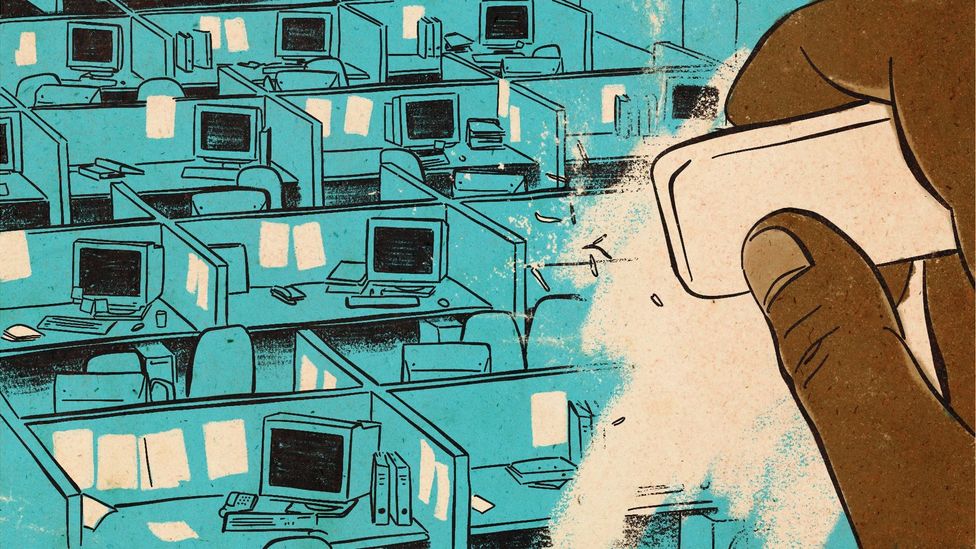
The world came to a standstill when it was struck by the Coronavirus pandemic at the beginning of 2020. In the initial days of the virus spreading, it did not seem real, and most predicted that it would have passed in a couple of months. However, almost a year later, the world is working on adjusting to and living with the COVID-19 virus. The immediate response to the virus was stricter rules around travel and restrictions when crossing borders. Additionally, there were multiple changes in the ways companies were functioning, while there were countrywide lockdowns, with most working from their homes. While all jobs could not adapt to remote working, most of them took the plunge to the internet.
Since the pandemic started, the UK lost almost a 100,000 lives to the virus, with 2.33 million infected but recovering. When it came to jobs, there were close to the equivalent of 650,000 of them lost to the pandemic, in the first three months. Now, closer to the end of the year, about 200 million jobs could be lost or altered through the pandemic and the processes that come with it.
The massive changes were devastating, and people had to adapt if they wanted to get through. There were a large number of people who were not looking to get back into the workforce until the markets started improving. The last thing that anyone wanted was to get a job and then the company shut. There were also a group of people open to working but finding it difficult to get jobs. Additionally, the changes forced companies toying with the idea of automation and simpler processes to rush the implementation. Since most employees and staff were working from home, productivity significantly dropped, so finding better ways to create processes was a wiser idea. Furthermore, there were new rules imposed dictating the number of people allowed in a closed space. Most offices could not hold the same number of people they were in the past, so a couple of changes were in order.
According to a study, since the beginning of the pandemic, the total weekly hours worked in the
UK saw a steep fall by a record 175.3 million. The numbers were a significant downgrade from the 1 billion hours the UK was clocking in annually, pre the pandemic to 877.1 million hours. The numbers were the largest fall in employment hours since 1971.
In the initial days of the pandemic, the unemployment rate in the UK started rising, with huge numbers of people losing jobs since companies were struggling to meet their targets. Businesses and companies were shutting down, and the unemployment rate started increasing. By July, it was at an all-time high of almost 5%, which was similar to several decades back. The Government introduced various schemes to assist companies in small ways, to reduce the number of people they were laying off. Various furlough schemes were introduced, along with some forced leave schemes that people had to get through. As a substitute, the Government also mentioned creating 30 billion pounds in jobs to assist the people in any way that they could. Additionally, the youngest and the oldest within the system were the worst to be affected by the changes.
The country even implemented additional changes like the rule of six, that meant only six people could meet at a time. They even went through multiple national lockdowns to reduce the spread and had everyone stay home. These changes slowed businesses, especially travel-based work, including imports and exports, which was a challenge to get through with border and travel restrictions. During the lockdowns, essential services were running, which meant there were a large number of people working in healthcare, medical stories, vehicle repairs who were keeping their doors open to the public.
While the Government wanted to assist the people in the best way they could, through the implementation of various schemes, they knew that they could not use them to power the situation forever and had to put an end to them at some point. The furlough scheme that provided companies with millions of pounds for about eight months finally saw the curtains come down in October, with several companies coming down with it. While many people and companies were asking for another Government scheme to assist, the Government could only support companies and tasks that were a direct connection to the Coronavirus since they could not keep providing bailout, especially if companies could not support themselves.
Companies that were hiring new staff were not sure how they were going to keep up, since they were no longer meeting the people they were interviewing, in person. Like most work meetings and coordination, that took place online, job interviews were also moving to the internet. To make sure that employers were picking the right people, who would work well together, and be a good fit for the entire team, they were now handling background checks.
While there are various options for background checks, companies could pick their requirement depending on the job they were hiring for and the job description. While some companies have specific requirements, others only needed to make sure the people they were picking did not have a past criminal record. The detailed checks sometimes involve the coordination between various offices, including the police who would provide the necessary information.
While background checks were not a mandatory requirement in the past, companies would handle them as and when they needed. However, with such a large number of people out of work, companies are becoming a lot more thorough with the work they handle and the people they hire. With the new rules, it seems unlikely that the new employees would come to the office, allowing companies to pick from the finest, even located far from the company office.